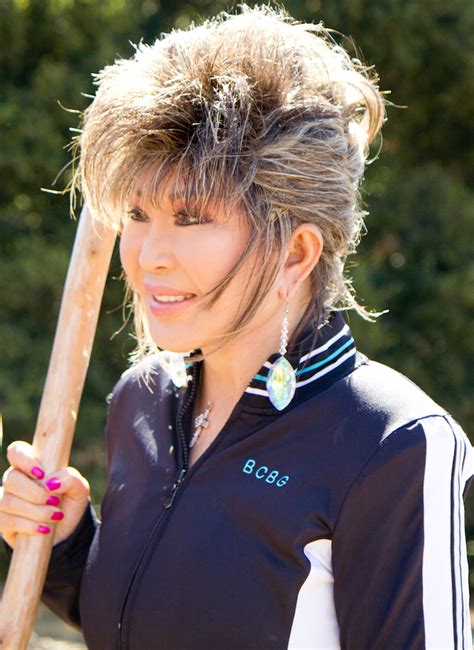A Quote by Daniel Everett
As a scientist, objectivity is one of my most deeply held values. If we could just try harder, I once thought, surely we could each see the world as others see it and learn to respect one another's views more readily. But I learned from the Pirahas, our expectations, our culture, and our experiences can render even perceptions of the environment nearly incommensurable cross-culturally.
Related Quotes
It is very important to understand that pluralism is part of our system. We don't all think the same thing and part of our strength is that we come from different perspectives. We have to respect one another even when we disagree with each other. There has to be a spirit of tolerance for the views of others, while also being deeply committed to the positions we hold. If we do that, I think we can coexist and learn to love each other better.
Our environment, the world in which we live and work, is a mirror of our attitude and expectations. If we feel that our environment could stand some improvement, we can bring about that change for the better by improving our attitude. The world plays no favorites. It's impersonal. It doesn't care who succeeds and who fails. Nor does it care if we change. Our attitude toward life doesn't affect the world and the people in it nearly as much as it affects us.
One of the fundamental demonstrations of our natural instinct to Bond with each other is a will to give. Rather than domination, our most basic urge is to reach out to another human being, even at a cost to ourselves. Giving to others-the urge to empathize, to be compassionate, and to help others altruistically-is not the exception to the rule, but our natural state of being. Our impulse to connect with each other has developed an automatic desire to do for others, even at personal cost. Altruism comes naturally to us. It is selfishness that is culturally conditioned and a sign of pathology.
I don't know what America has really learned. We are too quick to do what's expedient on behalf of our culture of greed and hedonism. We're quite prepared to go to conditions of tyranny in order to sustain that culture, and we do it in the name of democracy, when nothing could be more undemocratic. We do it in the name of saving the values of our society, when the way we behave corrupts those values. We do it in the name of God in whom we believe, when in fact we have corrupted our own vision of the Christian journey.
The misfortune of others is our misfortune. Our happiness is the happiness of others. To see ourselves in others and feel an inner oneness and sense of unity with them represents a fundamental revolution in the way we view and live our lives. Therefore, discriminating against another person is the same as discriminating against oneself. When we hurt another, we are hurting ourselves. And when we respect others, we respect and elevate our own lives as well.
Our inner strengths, experiences, and truths cannot be lost, destroyed, or taken away. Every person has an inborn worth and can contribute to the human community. We all can treat one another with dignity and respect, provide opportunities to grow toward our fullest lives and help one another discover and develop our unique gifts. We each deserve this and we all can extend it to others.
In the tradition of Julian of Norwich and St. Teresa of Avila and all the other mystics, we can learn to render ourselves vulnerable to the "favors of God" - those indescribable experiences that mock our dualisms and so saturate our imagination with abundance that they transcend our ability to convey joy and wonder. In the tradition of St. John of the Cross, we can learn to survive and derive benefits from the soul's dark night.
Social media puts us inside our phones and our computers and our headphones, and we're not connecting so much with our outside environment. Even when people go to the Grand Canyon they're more concerned about the selfies than actually looking at the canyon. I see it with my own kids - the addiction to needing things fast, never pausing to just see what's around us and connect with our fellow human beings in real time.
For it was only after I could become President of this country that I could really see in all its hopeful and troubling implications just how much the hopes of our citizens and the security of our Nation and the real strength of our democracy depended upon the learning and the understanding of our people.


































